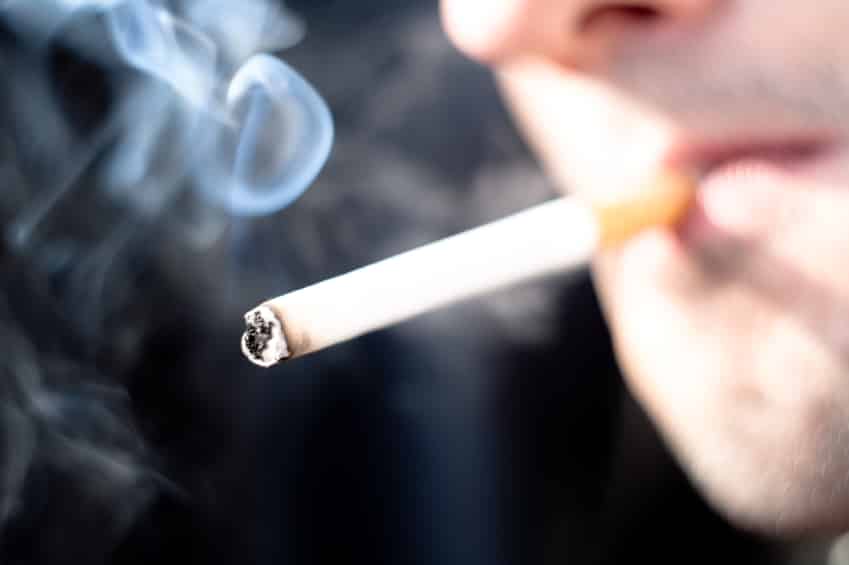Approximately 21.2% of adults in Michigan use tobacco products, according to the Centers for Disease Control and Prevention. It’s no secret that smoking cigarettes is bad for your health, but do you know just how bad it is for your teeth and gums? There are a number of oral health risks from tobacco products that you should keep in mind if you want to keep your smile shining bright. Read on to learn what tobacco does to your oral health.
Gum Disease
Smokers are at a particularly high risk of developing gum disease. A CDC study from 2010 revealed that 47.2% of smokers had periodontitis, with 64% of patients over the age of 65 experiencing moderate to severe periodontitis. Smoking weakens your immune system, which inhibits your body’s ability to fight infection. It only takes a small amount of damage to create widespread gum disease when your body has no way to ward off the problem. Because of the weakened immune system, patients who smoke often have less success with gum disease treatments than patients who do not smoke.
Tooth Discoloration
Many smokers experience problems with yellowed and discolored teeth as a result of their tobacco use. Smoking wears down your teeth’s enamel, revealing the dark colored dentin lying below the surface. Teeth whitening and other treatments will help to reverse the impact of smoking on the color of your smile, but you will have to spend a great deal of time and money trying to keep your teeth white. If you drink coffee, tea, soda, wine, or other dark drinks on a regular basis, you are even more at risk of dental staining. It’s best to stay away from these drinks and tobacco products to keep your smile looking its best.
Tooth Decay
Yet another problem that comes from tobacco use is tooth decay. We’ve seen this in a number of our Michigan dental patients, especially those who have smoked for a prolonged period of time. The decay may be minimal enough to correct with dental sealants or fillings, but it may require tooth extractions, dental implants, or dentures if left untreated. Brushing with fluoride toothpaste and using fluoride rinses can help to reduce this effect, but ultimately, you are still putting yourself at risk if you continue to use tobacco products.
Tooth Loss
Your oral health risks from smoking may not stop at basic tooth decay. You could lose teeth altogether because of your tobacco use. This is partly due to the tooth decay that occurs with smoking and partly due to the gum disease that you may develop along the way. That is why many long-term smokers have to wear dentures, because they begin losing their teeth at a fairly early age. The best way to prevent this is to stop smoking altogether.
Oral Cancer
Oral cancer accounts for 9,575 deaths per year in America, with 48,250 new cases reported each year. Signs of oral cancer are often noticeable and treatable 2-8 years before the cancer develops. With that in mind, smokers may experience an accelerated rate of development due to their lowered immune systems. Tobacco users are also at risk of other cancers, including lung cancer and other respiratory conditions. Combine this with the potential problems listed above, and it’s clear why dentists urge their patients to stop smoking.
Think about the oral health risks from tobacco products, and consider making changes in your lifestyle to avoid them. If you don’t want to stop smoking altogether, try cutting back on the amount of cigarettes you smoke per day or the amount of dip you use. The less damage you do to your mouth, the better your oral health will be.











